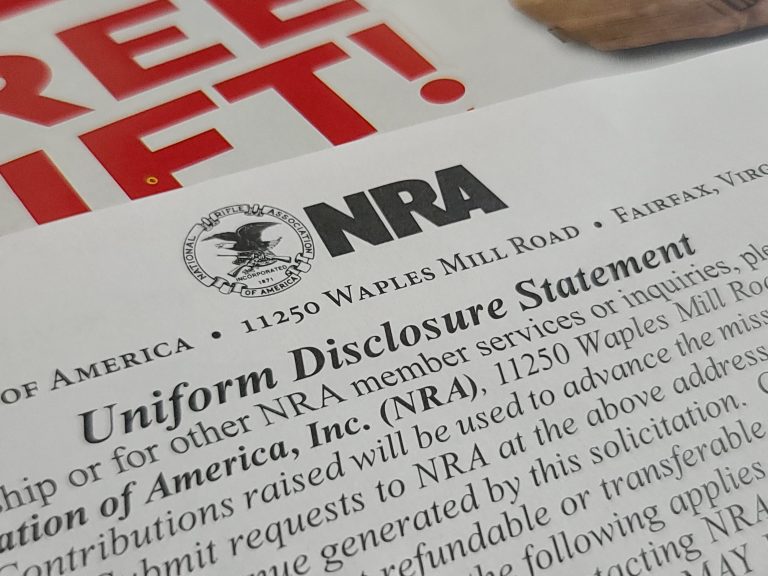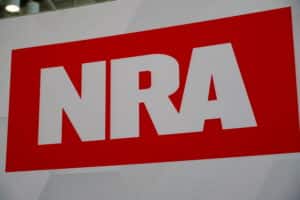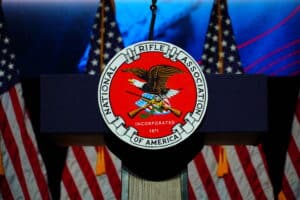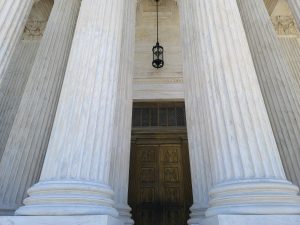The National Rifle Association’s charitable foundation has agreed to implement a series of reforms as part of a deal to end a lawsuit brought against it by Washington, D.C.
The NRA Foundation, the 501(c)(3) arm of the nation’s largest gun-rights group, signed on to a settlement with DC Attorney General Brian Schwalb (D.) on Wednesday. The group will have to adopt a conflict-of-interest policy, a board and officer compliance training program, and new standards for lending money or doing business with other NRA entities. It also agreed to limit loans to the NRA’s other operations to only charitable purposes in line with the group’s educational mission. However, it admitted no wrongdoing and avoided the more severe sanctions the AG initially sought to impose.
“Tax-exempt nonprofits are a form of public trust—abusing that trust as the NRA did violates both the public interest and District law,” Schwalb said in a statement. “Today’s outcome builds on our longstanding commitment to safeguarding nonprofit donors’ money and ensuring that all nonprofits operating in the District of Columbia follow the law.”
The deal ends another one of the many legal struggles the NRA has been embroiled in since accusations of financial impropriety by the group’s leaders were made public back in 2018. It comes on the heels of a New York jury finding the NRA’s 501(c)(4) arm failed to safeguard its charitable assets in a February ruling. The jury also found former CEO Wayne LaPierre and former Treasurer Wilson “Woody” Phillips liable for millions of dollars in damages to the group for diverting funds to lavish personal expenses. The DC settlement prevents the NRA from having to start a second trial while they await the sentencing phase of the New York case, which could result in the judge appointing a financial monitor and organizational overseer.
Schwalb accused the NRA Foundation of ignoring its own interests to send millions of dollars to the group’s other entities without proper oversight.
“Donors are entitled to know that their charitable contributions will be used in furtherance of a nonprofit organization’s stated charitable mission. The NRA Foundation—the charitable arm of the NRA—violated this sacred public trust, allowing the NRA to use them as an unchecked piggy bank,” he said. “Caving to pressure from the NRA, the Foundation diverted millions of dollars to the NRA in grants and risky loans that were repaid only after OAG filed its lawsuit.”
The NRA disputed Schwalb’s claims and demanded he retract them in a letter to his office that was obtained by The Reload. It noted the lawsuit initially asked the court to appoint an overseer for the Foundation, a condition not included in the deal, and the Foundation didn’t admit to any wrongdoing in the settlement. It also asserted the NRA had agreed to pay back the Foundation for an outstanding loan before DC filed its lawsuit.
“The DCAG’ spins’ today’s settlement in avoidance of the facts: the DCAG long ago abandoned any claims of wrongdoing against the NRA,” William Brewer, the NRA’s outside counsel, said in a statement. “Even by DC standards, this is rank political gamesmanship – an after-the-fact justification for a failed lawsuit by these officials.”
The AG’s office did not respond to a request for comment. However, the Foundation did agree to a series of changes to its operations as part of the deal. In addition to adopting a conflict-of-interest policy, training for Foundation officers, and rules for loaning money to the NRA, the Foundation also agreed to create an audit committee and institute specific rules for what programs it funds at the NRA as well as rules for doing business with the group in things like rental agreements.
The NRA Foundation argued these concessions were minor and mostly in line with how it already operated.
“Under the terms of the consent judgment with the District, the Foundation agrees to continue doing what it has always done: comply with applicable not for profit law,” a spokesperson for the Foundation told The Reload. “The Foundation further agrees to continue to provide nonprofit compliance training for its Board of Trustees, form its own Audit Committee, adopt a new conflict of interest policy in line with what it has always followed, and modify slightly its processes for grantmaking to the NRA. While the NRA and Foundation have had a Shared Services Agreement in the past, the Foundation has agreed to modify its Shared Services Agreement to identify the specific expense allocation methodologies that the parties have applied in the past.”
The NRA said it still views the settlement as a “victory” over politically-motivated lawfare.
“This is further proof of the NRA’s commitment to good governance,” Charles Cotton, NRA President, said in a statement. “The NRA confronted this political attack – and emerges from this lawsuit strong, secure, and vindicated. The NRA and NRA Foundation are fully committed to pursuing their world-class firearms education, training, and safety programs.”
With the DC case now in its rearview, the NRA awaits the outcome of the sentencing phase of the New York trial. Those proceedings will begin in June.






